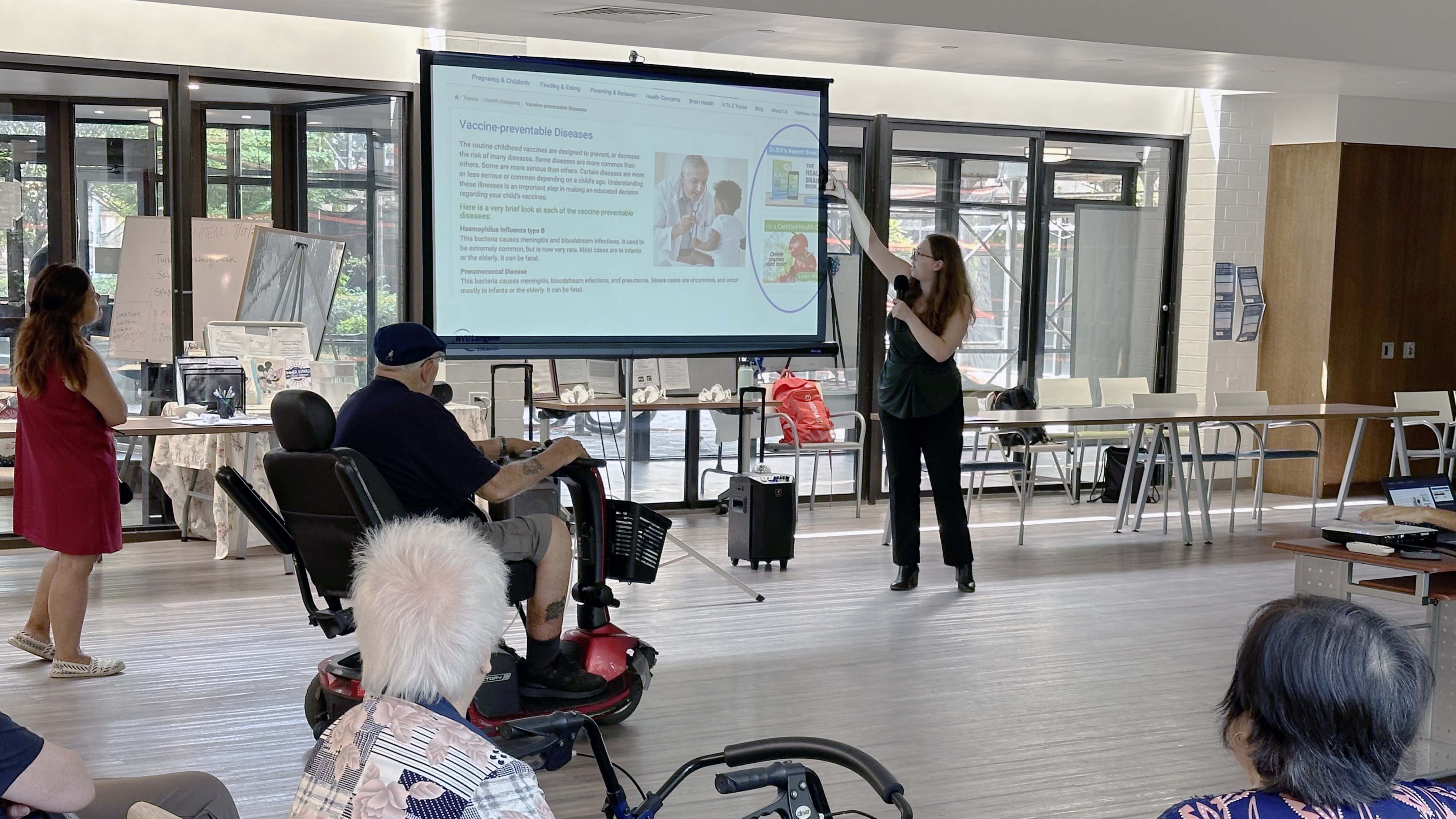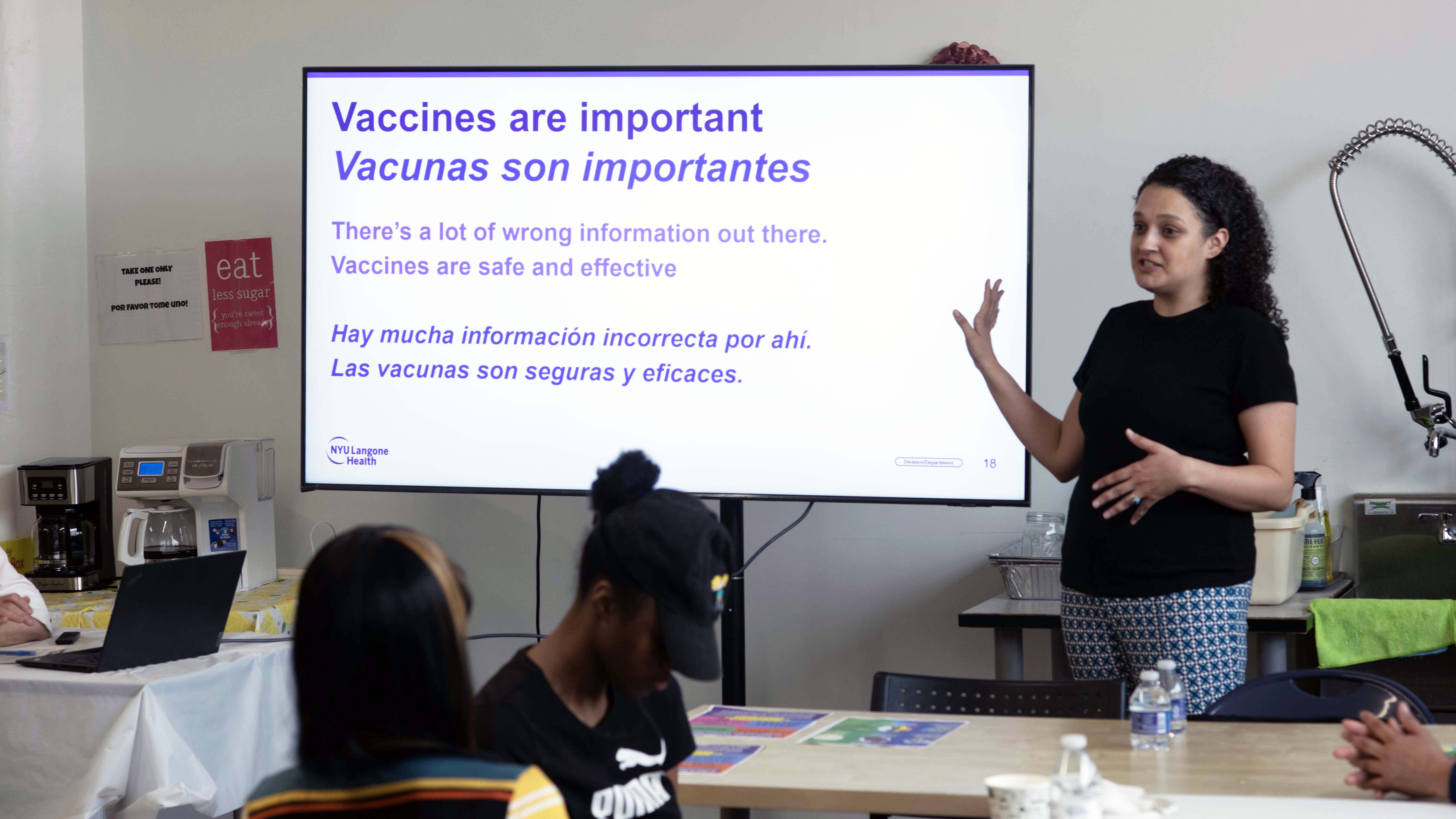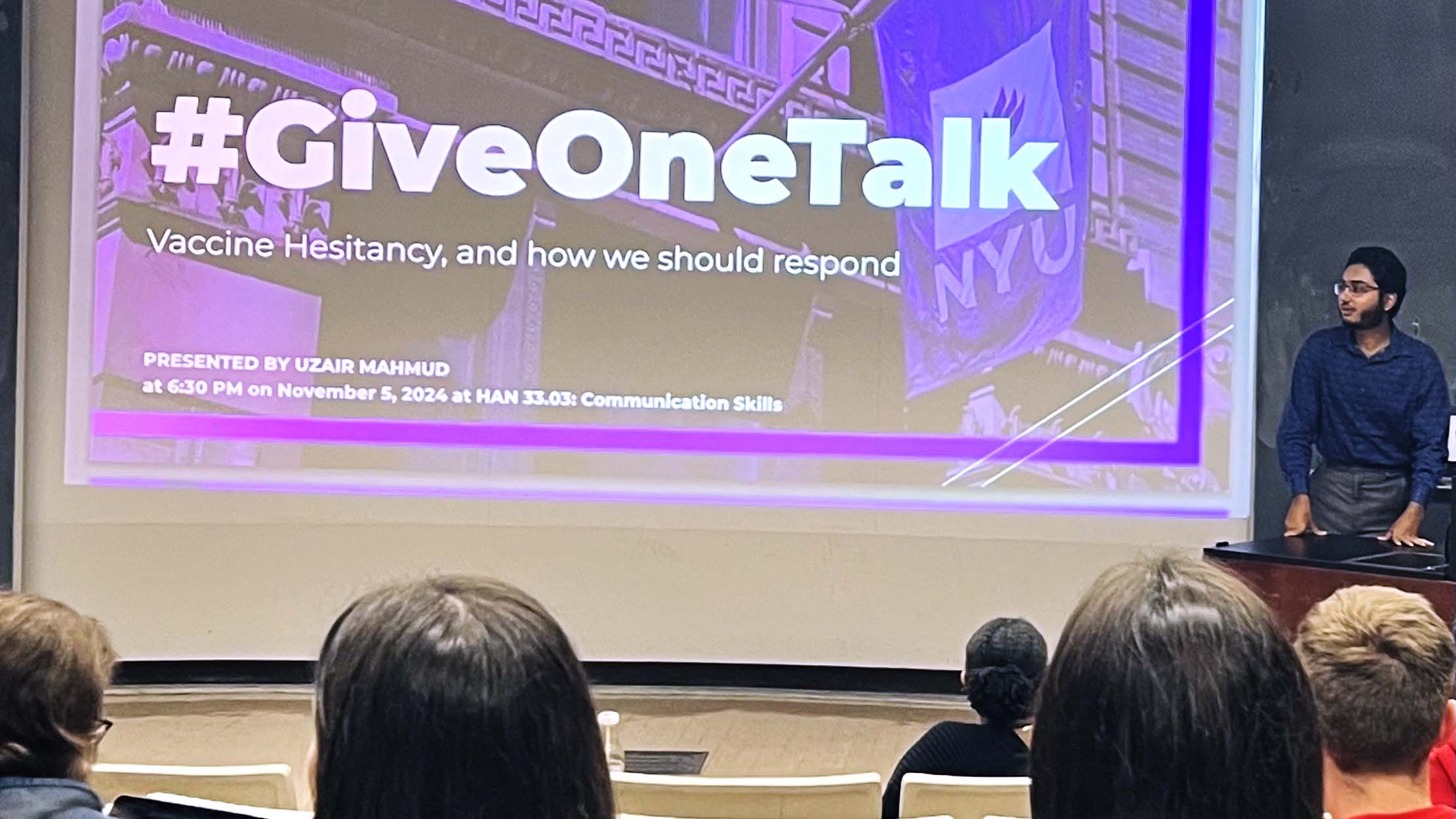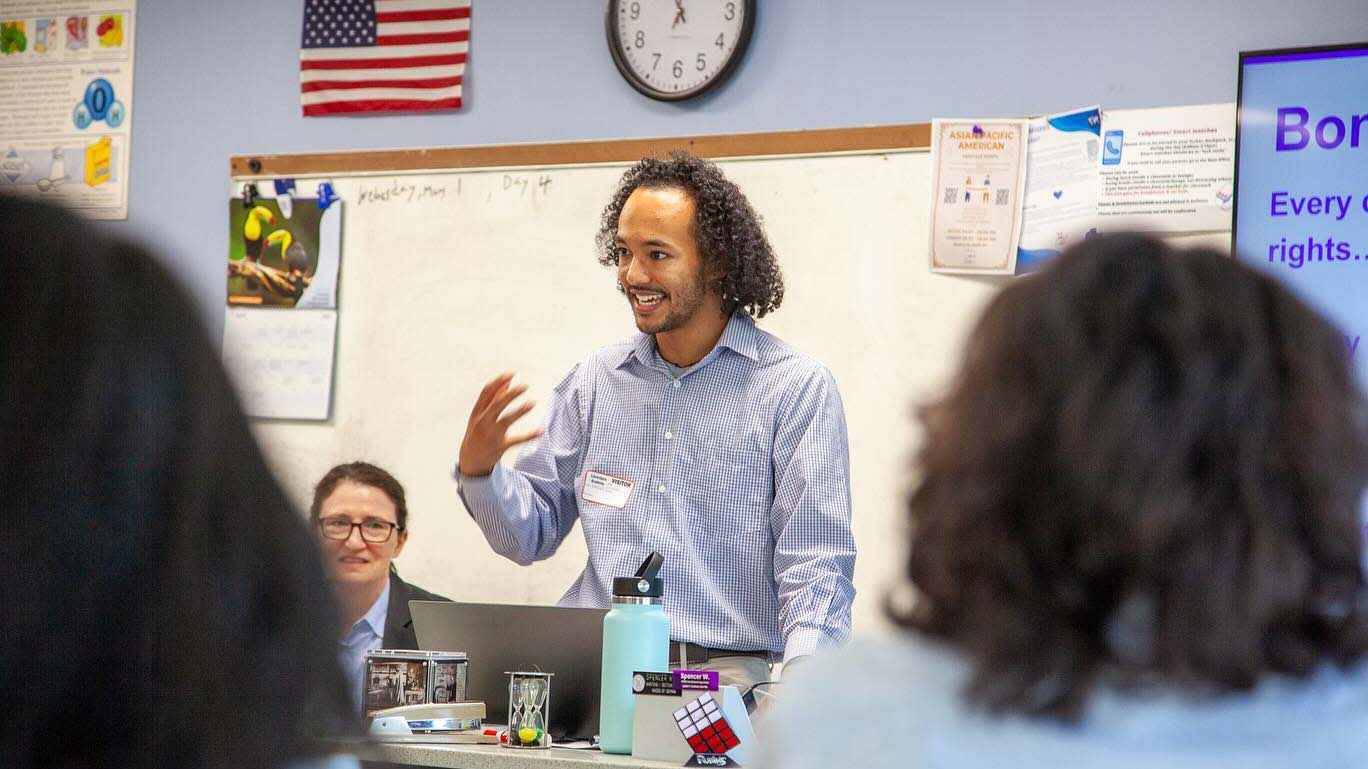
Give One Talk Vaccine Information Project
Outliving the COVID-19 pandemic is the “vaccine misinformation pandemic.” False information about vaccines has spread worldwide, and many reacted with rejection of vaccines, one of public health’s most effective tools. Hundreds of thousands died because of that decision. After COVID-19, the anti-vaxx movement gained traction and has become a gateway to rejecting scientific truths. Today, biomedical sciences are at serious risk. Responding to the initial threat of vaccine misinformation, NYU Langone’s Section of Medical Ethics launched #GiveOneTalk (G1T), a vaccine information project. It has since expanded to confront misinformation of all kinds in the fight for science.
G1T is a program designed to teach healthcare students and professionals how to publicly counter scientific misinformation by providing accurate information in a trustworthy way. The program’s goal is to make it a professional obligation for healthcare professionals to address misinformation about biomedicine.
G1T believes change starts at the local level. Team members speak locally in workshops—to student groups, religious communities, service organizations, and community centers—as part of a ground-up effort to improve understanding of the biomedical sciences to protect individuals, families, and communities from dangerous misinformation. G1T also builds trust and improves team members’ communication skills.
G1T grew out of the High School Bioethics Project, which develops curricula to encourage youth interest in bioethics and provides mentorship and instruction via internships for high school students. The project includes lesson plans and learning scenarios on a wide variety of bioethics topics, including vaccine ethics.
Listen to Arthur L. Caplan, PhD and Nathaniel Mamo, MA, discuss G1T on the FACTSinnated podcast, and read what people have to say about the program.




Notable Collaborations
Shore Hill Older Adult Center, Brooklyn, NY
HAPP Program Community Center, Brooklyn, NY
Sunset Park Older Adult Center, Brooklyn, NY
Capiague Memorial Public Library, Capiague, NY
Together Growing Strong, Brooklyn, NY
Tisch Hospital, Manhattan, NY
Institute of Excellence in Health Equity’s Faith Forum, Manhattan, NY
Brooklyn Central Library, Brooklyn, NY
Leman Manhattan Preparatory School, Manhattan, NY
Lacordaire Academy, Upper Montclair, NJ
Student Activities Center, Stony Brook, NY
New York Climate Exchange, Governor’s Island, NY
Founders Hall, Ridgefield, CT
Ridgefield Public Library, Ridgefield, CT
Give One Talk Team Members
Arthur L. Caplan, PhD
Lisa Kearns, MS, MA
Nathaniel Mamo, MA
Pamela Johnson, MA
Educational Resources
The following resources provide information and education for those interested in the G1T:
- Children’s Hospital of Philadelphia Vaccine Education Center provides accurate and up-to-date information about vaccines.
- Immunize.org is a comprehensive website with information on vaccines, guidance, and policy, aimed at both providers and the public.
- National Foundation for Infectious Diseases links to government vaccine recommendations and condenses information by age-group and demographic.
- The National Academies of Science, Engineering, and Medicine offers a Scientist’s Guide to Misinformation with practical steps that scientists can take to identify and address inaccurate scientific claims.
- Kaiser Family Foundation’s Vaccine Monitor provides information about the public’s opinion and experience with COVID-19 vaccines.
- Know Your Vaccines is an independent website that offers information on vaccine ingredients in a simple and easy-to-understand way.
Publications
Caplan A. “Don’t wait out four hard years: speak truth to power.” Nature. 17 March 2025. DOI.
Mamo N. “A Secret to Restoring Trust in Vaccines.” The Hastings Center for Bioethics, January 28, 2025.
Pasadyn F and Caplan A. “Measles is back, fueled by lack of vaccination and misinformation.” Newsday, April 14, 2025.
See a full list of G1T’s publications, videos, podcasts, and radio.
Contact Us
If your organization would like to request a speaker, or if you are interested in participating as a speaker, contact Nathaniel Mamo, MA, Associate Director of G1T, at Nathaniel.Mamo@NYULangone.org.